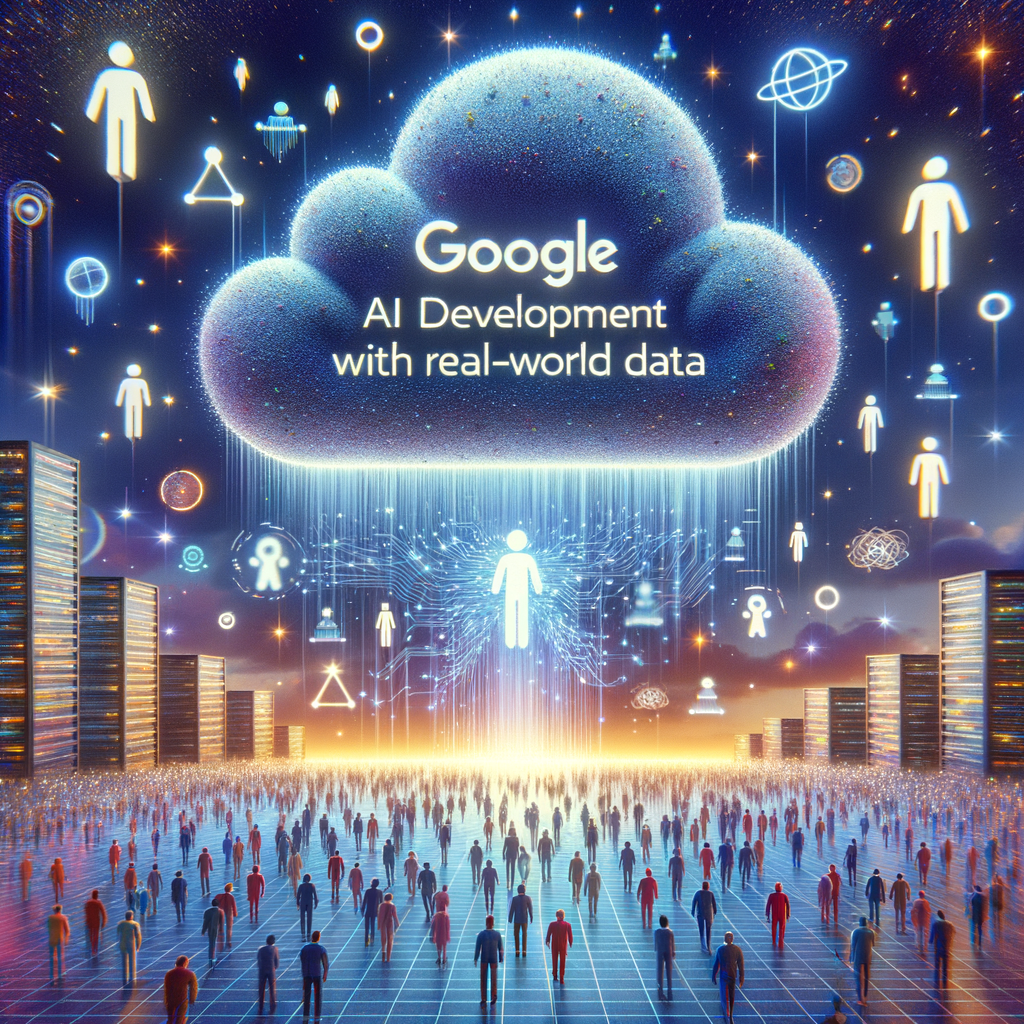- 28 June 2024
- 159
Google’s Real-World Data Partnerships: AI Transformation Initiatives

Introduction
In the relentless pursuit of advancing artificial intelligence (AI), Google has forged strategic partnerships with industry giants Thomson Reuters, Moody’s, and others to empower its AI models with real-world data and domain expertise. These collaborations mark a transformative step in the evolution of AI, bridging the gap between theoretical algorithms and the practical application of machine learning.
Partner Collaborations
Thomson Reuters:
Google has joined forces with Thomson Reuters, a leading provider of business intelligence, to access its vast repository of news articles, financial data, and legal information. This partnership provides Google’s AI systems with a comprehensive understanding of global events, market trends, and legal frameworks.
Moody’s:
Google has partnered with Moody’s, a renowned credit rating agency, to leverage its unparalleled expertise in financial risk assessment. Moody’s data enables Google’s AI models to accurately evaluate the creditworthiness of businesses and individuals, enhancing risk management and lending decisions.
Other Partnerships:
In addition to Thomson Reuters and Moody’s, Google has established partnerships with a wide range of organizations, including:
- S&P Global: Access to financial news, data, and analytics
- IHS Markit: Industry-specific data and insights
- Dun & Bradstreet: Business information and credit ratings
- Clarivate Analytics: Scientific and scholarly literature
Benefits of Real-World Data
The incorporation of real-world data into Google’s AI models offers several tangible benefits:
- Enhanced Accuracy: Real-world data provides AI systems with a grounding in actual scenarios and events, improving the accuracy and reliability of their predictions.
- Broader Perspectives: Data from multiple sources and industries allows AI models to consider a wider range of factors, leading to more comprehensive and nuanced insights.
- Industry Specialization: Access to domain-specific data enables AI models to develop specialized knowledge and expertise, tailoring their performance to specific industries and applications.
- Reduced Bias: Real-world data helps mitigate bias in AI systems by exposing them to a diverse and representative set of inputs.

Applications of AI with Real-World Data
The applications of AI empowered with real-world data are vast and transformative across various sectors:
Financial Services:
- Credit scoring and risk assessment
- Investment analysis and portfolio management
- Fraud detection and prevention
Healthcare:
- Personalized medical diagnoses and treatment recommendations
- Early disease detection and prevention
- Drug discovery and development
Manufacturing:
- Predictive maintenance and quality control
- Supply chain optimization
- Production planning and scheduling
Legal:
- Legal research and document analysis
- Contract review and compliance
- Dispute resolution and case prediction
Other Applications:
- Precision agriculture
- Climate monitoring and forecasting
- Marketing and customer engagement
- Smart cities development
Challenges and Implications
While partnerships with data providers offer significant benefits, they also present challenges that require careful consideration:
- Data Privacy and Security: Safeguarding sensitive information and ensuring compliance with data privacy regulations are paramount concerns.
- Data Ownership and Control: Establishing clear agreements regarding data ownership, usage, and sharing is crucial to foster trust and protect intellectual property.
- Data Integration and Standardization: Combining data from multiple sources can be challenging, requiring effective data integration and standardization processes.
- Ethical Considerations: The use of AI in high-stakes applications raises ethical concerns, such as bias, transparency, and accountability.
Conclusion
Google’s partnerships with Thomson Reuters, Moody’s, and other leading organizations represent a paradigm shift in the development of AI. By incorporating real-world data, Google’s AI models gain unparalleled context, accuracy, and industry relevance. These collaborations unlock a vast array of possibilities for innovation and transformation across diverse sectors, while also highlighting the importance of addressing associated challenges.
As the field of AI continues to evolve, Google’s commitment to leveraging real-world data will undoubtedly drive further advancements and shape the future of intelligent systems. With the responsible use of data and careful consideration of ethical implications, AI has the potential to revolutionize our world and enhance human progress in countless ways.

